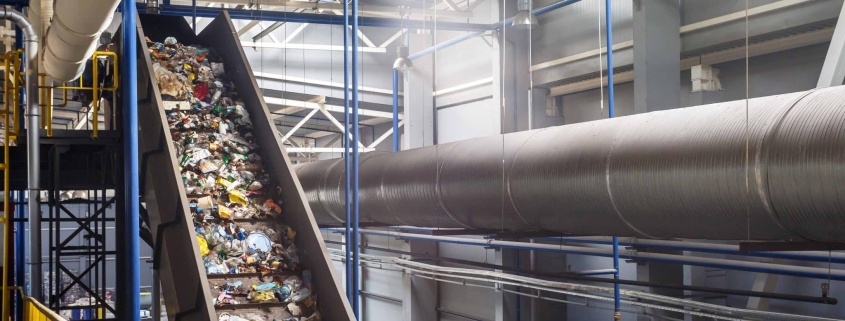Automation in the recycling industry
The recycling industry is an economic sector that is booming in our times due to society’s need to collect, process and convert used or discarded materials into new and useful products. This industry plays a crucial role in conserving natural resources and reducing the amount of waste that is sent to landfills.
Materials that are recycled in the recycling industry include paper, glass, metal, plastic, batteries, tires, and other products. These materials are collected, separated, processed and transformed into new products, contributing to the circular economy and a more sustainable future.
The recycling industry also encourages job creation and the reduction of greenhouse gas emissions. Overall, recycling is an important part of the solution to protect the environment and ensure a sustainable future for future generations.
On the other hand, the recycling industry is important for several reasons. One of the first and most important is the conservation of natural resources. By recycling used or discarded materials, the need to extract raw materials is reduced and natural resources such as minerals and forests are conserved. Recycling also requires less energy and emits fewer greenhouse gasses than producing new materials, helping to reduce your carbon footprint.
On the other hand, by recycling materials, you reduce the amount of waste sent to landfills, which helps protect the environment. In addition, the recycling industry generates jobs in the collection, separation, processing, and production of recycled materials. In turn, many discarded materials, such as metal and plastic, have economic value that can be recovered through recycling.
Last but not least is the reduction of pollution. Recycling reduces the amount of materials that are incinerated or stored in landfills, which contributes to the reduction of air, water and soil pollution.
What is automation in the recycling industry
The demand for quality recycled materials is increasing. For this reason, a more exhaustive classification of waste is necessary to guarantee obtaining a good final product. Although it is important to contribute to the mitigation of climate change through recycling, as we have explained above, it is also essential that this process be carried out efficiently and intelligently thanks to the automation of all the processes involved in the recycling industry.
Thanks to this, there are currently recycling machines that offer greater efficiency, less energy consumption and, above all, guarantee greater productivity, thanks to the fact that they can be in operation for a whole day without stopping and carry out a higher production. This is what is called the recycling industry 4.0.
Therefore, automation in the recycling industry is the use of automated technologies and systems to optimize the collection, separation, shredding and processing processes of recyclable materials. Automation allows more efficient management of recyclable materials, improving the quality of final products and increasing production.
Importance of automation in the recycling industry

Automation helps reduce operating costs by allowing recycling companies to improve their productivity and increase efficiency in terms of time and energy. In addition, automation also helps improve workplace safety by performing repetitive and potentially dangerous tasks automatically. Some of the advantages of automation in the recycling industry are:
Improve efficiency and productivity
Automation allows recycling companies to optimize their processes, which translates into greater efficiency and higher production. For example, if the system detects an error, it can act more quickly and efficiently to find problems or prevent them before they happen. Also, in economic terms, fully automated recycling plants are more competitive in an increasingly demanding market.
Costs reduction
Automation helps reduce operating costs by improving efficiency and increasing productivity. Additionally, it paves the way for more consistent detection, increasing material purity and reducing costs. It also allows collecting data to analyze all processes and minimize those that are not efficient.
Improves the quality of recycled products
Automation enables more accurate separation and sorting of recyclable materials, resulting in better quality of the final products. In automated recycling industries, for example, clothing is automatically sorted based on its composition, which improves the efficiency of the entire process and in turn represents a major step in the effort towards sustainability and efficiency of recycling. fashion and related industries such as textiles and manufacturing.
Safety in the workplace
Automation allows repetitive and potentially dangerous tasks to be performed automatically, improving safety in the workplace. For example, in the recycling of hazardous toxic or electrical waste, automated robots are one of the best alternatives to promote a sustainable circular economy without having to put operators at risk.
Contribution to a more sustainable future
Automation in the recycling industry helps protect the environment and recycle materials efficiently, thus contributing to a more sustainable future. It promotes the circular economy and reduces the impact of this industry on the environment. All this undoubtedly has an impact on the entities being able to meet the Sustainable Development Goals set by the United Nations Organization for the coming 2030.
In summary, automation in the recycling industry is a valuable tool to optimize processes, improve the quality of recycled products, increase efficiency and reduce costs, while contributing to a more sustainable future.









